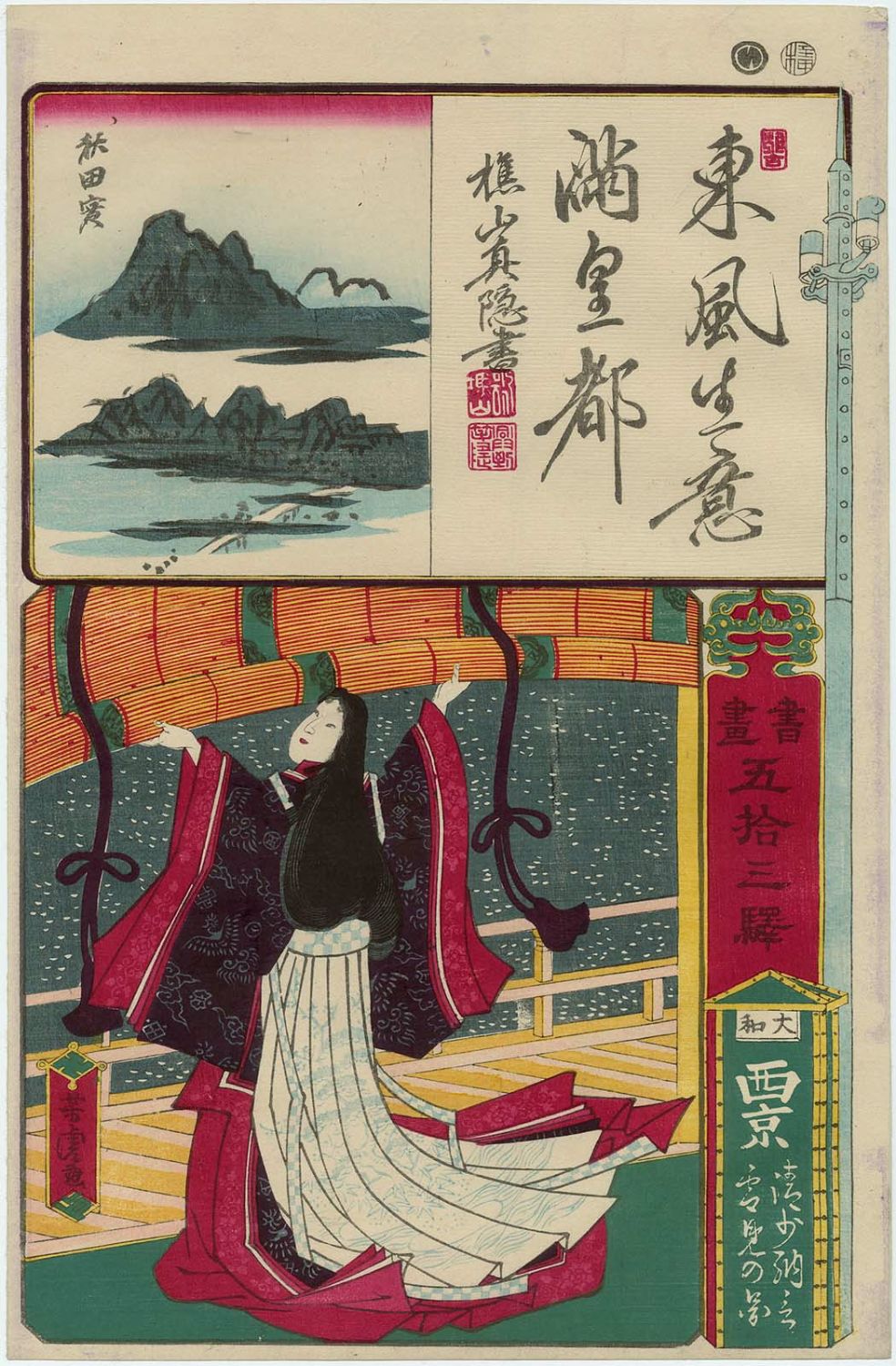清 少納言 Sei Shōnagon (966 - after 1017)

Sei Shōnagon, a member of the Kiyohara clan who served in the court of Empress Teishi, was a skilled poet, conversationalist, and author of Makura no Sōshi - The Pillow Book. Like her contemporary, Murasaki Shikibu, Sei was invited to serve at court based on her literary skill, to bring prestige to the young empress. During her time there, she composed a work that would later be described as a “miscellany” - a collection of poems, lists, observations, and short anecdotes detailing her life at court. While Murasaki and many other authors of the time were concerned with aware, melancholy at the fleeting nature of life, Sei also fills her work with okashi, delight. She was known for her wit and the clever way she could respond to men’s poetry challenges without directly revealing her knowledge of Chinese poetry - in one scene, she completes a verse posed by the emperor by raising a window blind, indirectly referencing the original poem without speaking a word of Chinese.
The Pillow Book, the work for which she is known, has undergone many transformations in its history, and the original form of the work is unknown. Various scribes and enterprising editors have left their mark on it over the years, and at some point, the chapters were shuffled, resulting in several non-authoritative versions of the text. However, many of Sei’s experiences - joys, annoyances, distasteful things, okashi - are just as relatable today as they were to court women a thousand years ago.
There are also those times when you send someone a poem you’re rather pleased with, and fail to receive one in reply. Of course, there’s no more to be done about it if it’s to a man you care for.—Sei Shōnagon, “Dispiriting Things”, The Pillow Book[1]
After Teishi was displaced by Empress Shōshi and died in childbirth, it’s unclear what happened to Sei. Some stories tell that she retired to become a Buddhist nun.
Footnotes
- Sei Shōnagon. Makura no Sōshi.